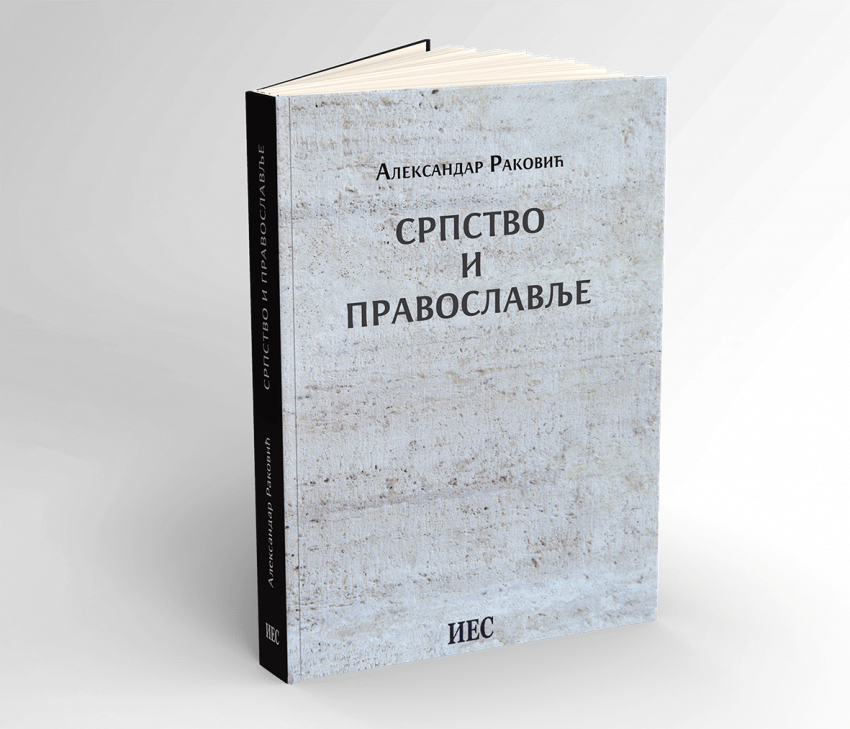The book by Dr Aleksandar Raković, Serbdom and Orthodoxy consists 57 texts he wrote and published from 2016 to 2022 in the official newspaper of the Serbian Patriarchate Pravoslavlje, the daily newspapers Politika and Večernje novosti, the political magazines Pečat, NIN and Balkan Fokus, on the portal of the Cultural Center of Novi Sad, in journal Tokovi istorije, and among them are some of his unpublished speeches, reports and elaborate. These are texts that should bring closer to the public very important topics from Serbian and general history, Serbian state and church politics, Serbian Orthodoxy, the Serbian language, the Cyrillic alphabet and academic life.
This work is a continuation of the book History, Religion, Politics (Belgrade: Otačnik, Pravoslavlje, Bernar, 2016), which contains Raković’s texts published from 2013 to 2016 in Pravoslavlje. Therefore, the book Serbdom and Orthodoxy has a subtitle History, Religion, Politics II. Books History, Religion, Politics and Serbdom and Orthodoxy. History, Religion, Politics II are socially and politically engaged scholar works. These two books are completely in line with Raković’s monographs that belong to engaged historiography: Serbs and Religious Interventionism 1991–2015: Political Aspects of Religious Challenges to the Serbian State and Church After the Breakup of Yugoslavia (Belgrade: Hrišćanski kulturni centar – Christian Cultural Center, 2015)and Montenegrin Separatism (Belgrade: Catena mundi, 2019).
The book Serbdom and Orthodoxy deals with the topic of Serbian unification in the past, present and future, and in this sense the role of Serbian states and their elites in the past, present and future. The book also shows the successful defense of Serbian states and Serbian Orthodox shrines against foreign interventionism and domestic converts, and this success would not have been possible without the synergy of the Serbs: the Republic of Serbia, the Republic of Srpska, the Serbian Orthodox Church, the Serbian people in Montenegro as well as the Serbian people in our neighborhood and Diaspora. Also, the book presents current and future challenges to which the Serbian people must find answers.
Raković concludes that there is the necessity of integration of the Republic of Serbia, the Republic of Srpska and Montenegro into a single Serbian state.

